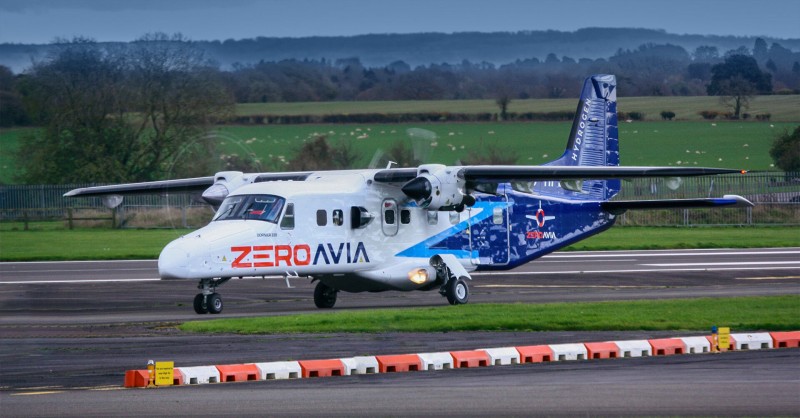ZeroAvia recently completed its initial prototype ZA600 flight testing campaign at Cotswold Airport in the UK. The 10th flight in the initial series was completed last week.
In the last six months, ZeroAvia has sequentially tested different areas of performance following the breakthrough, world-first flight of the system in January.
The campaign has seen the aircraft fly at 5,000 feet, perform an endurance test at 23 minutes, operate in the wide temperature range from just above freezing to almost 30C, and reach the maximum allowable speed under the Permit to Fly issued by the CAA.
ZeroAvia claims that throughout all phases of testing, the fuel cell power generation and electric propulsion system that are the core components of the novel zero-emission engine, performed at or above expectations
The hydrogen-electric engine has matched the power of the conventional, fossil fuel engine on the opposite wing, with the pilots able to fly with thrust generated only from the experimental clean propulsion system in certain tests.
Gabriele Teofili, head of aircraft integration & testing, ZeroAvia, said: “Plenty of people go through 40-year careers without marking their name in the history books of aerospace engineering. I’m so proud that so many of the team at ZeroAvia can say that they have done that already with this first phase of test flights. This Dornier 228 will now always have a place in our hearts, but we’re excited to take it on its next adventure and head further afield.”
Val Miftakhov, founder & chief executive, ZeroAvia, said: “Zero-emission flight technologies are moving from promise to delivery and our amazing team is leading the way with this testing programme. We do not have to push the unappealing choices on passengers of paying more or flying less to deliver climate conscious air travel. We instead can adopt this technology quickly to reduce climate impact and air pollution.”
ZeroAvia’s Dornier 228 flight testing programme is part of the HyFlyer II Project, which is part funded by the UK Government via the Aerospace Technology Institute, in conjunction with Innovate UK and the Department for Business and Trade.

